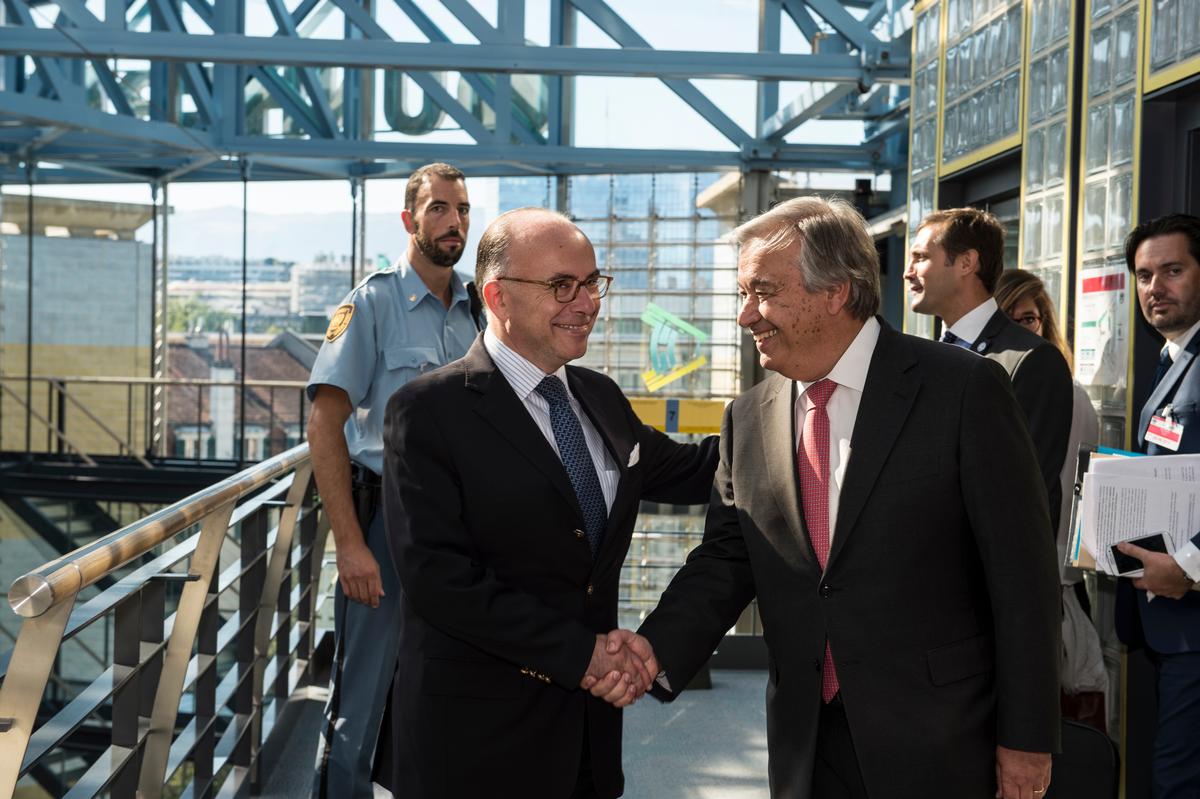Ministers in Geneva for landmark meeting on the displaced and stateless
Ministers in Geneva for landmark meeting on the displaced and stateless

GENEVA, December 6 (UNHCR) - The UN refugee agency caps its 60th year this week with a ministerial meeting in Geneva, the highest-level conference in its history on the issues of refugees and stateless people.
UN High Commissioner for Refugees António Guterres will on Wednesday open the two-day meeting, which celebrates key UN conventions in refugees and statelessness. Guterres will deliver an address on proposed measures the international community must take to protect and assist millions of forcibly displaced and stateless people in the second decade of the 21st Century.
Senior government officials from almost 150 countries have confirmed their attendance, including about 70 ministers or vice-ministers, including US Secretary of State Hillary Rodham Clinton. The conference is the culmination of political and diplomatic efforts over many years by UNHCR to rally renewed support and commitments for the fundamental legal treaties that enable the agency to provide protection and assistance to people worldwide.
In a year of commemorations, UNHCR has celebrated important milestones for two of those treaties - the 60th anniversary of the UN Convention relating to the Status of Refugees and the 50th anniversary of the Convention on the Reduction of Statelessness. The UN refugee agency reached its own 60th birthday last December.
The gathering will enable states and other actors to make concrete pledges to address specific forced displacement and/or statelessness issues, as well as broader, forward-looking recommendations. This will allow states and others to identify challenges of particular relevance in their respective national and regional contexts, as well as realistic ways to resolve them.
Some 40 states have confirmed that they will make pledges of policy and other action, with many more expected to announce pledges. These will address a broad range of issues, including commitments to accede to one or more of the conventions, or to review their reservations to the 1951 Refugee Convention.
A number of states will pledge to work towards reviewing, amending or adopting national asylum laws and policies, to bring them more in line with their international obligations and current realities. Others will take steps to improve the quality of refugee status determination, particularly through increasing capacity and expertise.
In addition, ministers will adopt a communiqué - a short, non-binding, political statement capturing the main challenges relating to statelessness and refugee protection today, ad looking to the future.
During a special treaty event on Thursday, countries will deposit instruments of accession to one of the conventions. Those doing so will be joined by other states that have acceded during the current year, as well as countries expected to accede soon.
Aside from the opening address by Guterres, there will be a video message from UN Secretary-General Ban Ki-moon. Among other speakers are Secretary of State Clinton, former Finnish president and Nobel peace laureate, Martti Ahtisaari, Swiss President Micheline Calmy-Rey and former UNHCR chief Sadako Ogata.
Preparations for this meeting have taken place in Geneva and field locations and have included consultations with states, non-governmental organizations, experts, refugees and stateless people. Special efforts have been made to ensure that the views and hopes of refugee women and children are taken into account.







